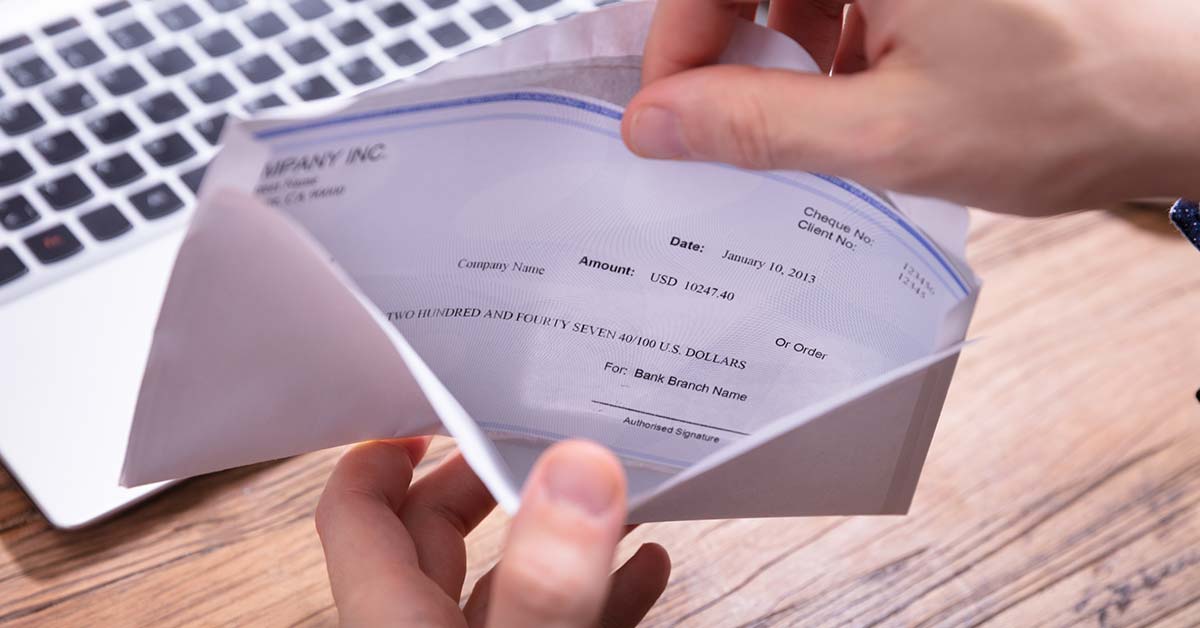The Hidden Value of a QoE: Better Diligence, Better Audits
For searchers, a Quality of Earnings (QoE) engagement does more than support a transaction. It sets the foundation for smoother financial reporting...

UPDATED: July 2, 2020 - 11:00 a.m.
On Wednesday, July 1, Congress approved an extension of the period in which to apply for Paycheck Protection Program (PPP) funds, with small businesses now having until August 8 to apply for the $134 billion of funds which remain in the program. The White House has been orally supportive of such an extension, so it is likely that President Trump will sign this legislation shortly.
UPDATED: April 13, 2020 - 11:30 a.m.
On Friday, April 10, 2020, the IRS issued additional guidance regarding the deferral of payroll tax available under the CARES Act. The most significant clarification relates to the deferral of employment taxes for those taxpayers also receiving a Paycheck Protection Program (PPP) loan. The guidance clarifies that employers can defer deposit and payment of the employer’s share of social security tax without penalties up to the date the employer receives a decision from its lender that its PPP loan is forgiven. After that date the employer is no longer eligible to defer the employer’s share of social security tax. Any amount that was properly deferred would be due evenly on December 31, 2021 and December 31, 2022. Click here for a link to the updated guidance.
In addition, Form 941, Employers Quarterly Federal Tax Return, will be revised for the second quarter filing (April - June) to account for the deferred portion of employer social security tax. The IRS will provide instructions for employers who deferred deposits otherwise due on or after March 27, 2020 for the first quarter 2020 Form 941.
UPDATED: April 7, 2020 - 12:30 p.m.
On Monday, April 6, 2020, the Treasury released an FAQ regarding this program which you can read in its entirety here. Here are additional details that were clarified:
UPDATED: April 3, 2020 - 10:30 a.m.
On Thursday, April 2, 2020, the Small Business Administration (SBA) issued its Interim Final Rule regarding the Paycheck Protection Program loans available to businesses, nonprofits, sole proprietors and independent contractors under the CARES Act. Funds for such loans are limited, so businesses should act now if they intend to apply for this loan.
Some key areas of note are:
The following terms still apply per the guidance issued on March, 31, 2020:
Small businesses, nonprofits, and sole proprietorships can apply starting April 3, 2020 and independent contractors and self-employed individuals can start applying on April 10, 2020.
ORIGINAL POST: March 27, 2020 - 11:03 a.m.
Late on the night of March 25, 2020, the Senate passed the CARES Act to provide emergency assistance to individuals and businesses impacted by the coronavirus pandemic. The $2 trillion bill passed unanimously and is now going to the House of Representatives where House Speaker Nancy Pelosi is expected to bring it to a vote soon.
One of the key features of the bill is the expansion of Small Business Act to include the “Paycheck Protection Program.” The Senate bill authorizes up to $349 billion in loans for this program designed to provide immediate liquidity to businesses impacted by the coronavirus.
The “Paycheck Protection Program,” modifying Section 7(a) of the SBA act, is available to businesses, nonprofit organizations, veterans organizations or Tribal businesses with 500 or fewer employees (or, if higher, the standard number employees established by the SBA for certain industries). In addition, sole proprietor, independent contractors, and eligible self-employed individuals are eligible to participate in the program. Businesses in the restaurant and hospitality industry have less restrictive rules for determining their employee count.
An eligible recipient receiving a loan must make a good faith certification that the uncertainty of prevailing economic conditions makes the loan request necessary to support ongoing operations and that the funds will be used to retain workers, maintain payroll, pay group healthcare benefits including insurance premiums, or make mortgage, lease, or utility payments. In addition, the borrower cannot receive both a loan under this program and an economic injury disaster loan for the same purpose but they may be eligible to refinance the loan into the program.
Taxpayers receiving loans under this program are not eligible for the employee retention credit provided for in the CARES Act.
This article was originally posted with the number five rather than the two-point-five shown below. The correct multiple is two-point-five.
The loan amount available to a business is the sum of:
Special rules exist to determine the average wages if the business was not in existence beginning February 15, 2019 and ending June 30, 2019. The maximum loan amount under the program is $10 million. Loans eligible for the program are loans made between February 15, 2020, and ending on June 30, 2020.
For purposes of determining the maximum amount of the loan, payroll costs means:
A loan under the Paycheck Protection Program is eligible to be forgiven in an amount equal to the sum of the payroll costs; payment of interest on a covered mortgage obligation; rent obligations (in place before February 15, 2020); and utility payments (if service began before February 15, 2020) incurred during the 8-week period following receipt of the loan.
The forgiven amount shall not exceed the principal amount of the loan. In addition, the amount of the loan eligible to be forgiven is:
If, within 30 days of enactment of the law, the employer re-hires employees there is an exception to the reduction in the portion of the loan forgiven.
Employers who receive loan forgiveness under this program are not eligible for the employer or self-employed payroll tax payment deferral provided for in the CARES Act.
Any loan amount in excess of the amount forgiven shall be payable over 10 years at an interest rate not in excess of 4%. Also, the loan forgiven under this section is excluded from taxable income.
Businesses and other organizations who are interested in this program should contact their banker or a lender approved to make loans guaranteed by the Small Business Administration for more information.

For searchers, a Quality of Earnings (QoE) engagement does more than support a transaction. It sets the foundation for smoother financial reporting...

In most M&A conversations, risk can be oversimplified too quickly. Buyers ask, “What if we overpay?” Sellers worry, “What if we leave money on the...

For independent searchers, structuring the right deal isn’t just about finding a great business. It’s about creating the right balance between risk...